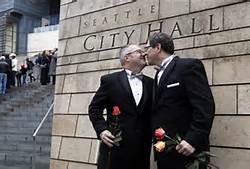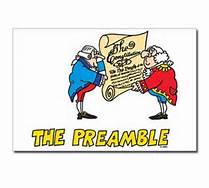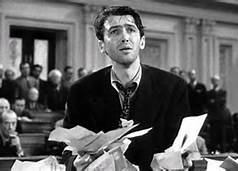THE DEBATE: GAY MARRIAGE AND THE LAW
Note:
The following is a unique post. It contains two different essays. The first essay is written by the husband (John Marsh) of one of Rational Faiths’ permabloggers and is in support of the recent court ruling in Utah allowing gay marriage. The second is an essay written by Rational Faiths’ permablogger, Corbin Volluz, and argues in opposition to the recent court ruling. Enjoy and please leave a comment.
Liberty and Justice for All
by John Marsh
Judge Robert Shelby’s landmark ruling in favor of three gay and lesbian couples by declaring Utah’s Amendment 3 unconstitutional was correct in its interpretation of the law and rightly moves our country forwards towards greater equality and liberty.
What traditional marriage would look like today without ‘activist judges’ in the 1880s
Marriage as an institution has continually changed throughout recorded human history. It was typically used as a means of transferring wealth, creating alliances between two groups, involved polygamous relationships, was not based in romantic love but rather arranged by parents and generally did not involve the church until the 13th century or the state until the 17th century.
As such, the idea of “traditional marriage” needs to be understood as a much more recent development, created in the popular imagination during the last century. Women were expected to be in the kitchen, subservient to their husbands with the men as lords over their households.
Within the last half century, “traditional marriage” has undergone a series of radical shifts, with racial and gender equality norms becoming codified in federal and state law. In 1965 the Supreme Court overturned laws prohibiting married couples from using contraception. Two years later interracial marriage was legalized. Married women were unable to obtain credit in their own name until 1975. Marital rape was legal in various states until 1993. As such, “traditional marriage” looks very different in 2013 than it does in 1963.
Traditional marriage in 1967 before more meddling activist judges
During this time, growing legal and societal recognition of LGBT citizens has evolved in tandem with shifts in our marriage laws. The legal recognition of gays and lesbians as increased as the law, and society in general, has come to view homosexuality as a normal facet of the human condition.
The most prominent example of the intersection of LGBT rights and marriage law is the enacting of the Defense of Marriage Act (DOMA) in 1996 and the Supreme Court ruling overturning that law in 2013.
The most telling moment of how society’s views shifted over time was during the oral arguments of the case. The following exchange occurred between Justice Elena Kagan and the lawyer defending DOMA, Paul Clement:
JUSTICE KAGAN: Well, is what happened in 1996 — and I’m going to quote from the House Report here — is that “Congress decided to reflect an honor of collective moral judgment and to express moral disapproval of homosexuality.”
Is that what happened in 1996?
MR. CLEMENT: Does the House Report say that? Of course, the House Report says that. And if that’s enough to invalidate the statute, then you should invalidate the statute.
The intent of the law was to “express moral disapproval of homosexuality.” As such, many other states, including Utah, have gone to great lengths to pass anti-gay marriage legislation with the same intent.
Judge Shelby’s ruling striking down Utah’s ban on same-sex marriage is the logical extension of acknowledging the rights of all citizens to marry. His ruling comes on the heels of Judge Clark Waddoups ruling striking down Utah’s anti-polygamy law and is also based in the same logic that adults should be able to marry the adult partner(s) of their choosing without having the state pass moral judgement on their relationship.
One of most Utah-looking families you’ll find, especially the ridiculously large flower headband
An excellent summary of the rationale that Judge Shelby used in reaching his decision from SCOTUSBlog:
“Along the way toward his ultimate conclusion, Judge Shelby ruled that the issue of state authority to outlaw same-sex marriage is no longer controlled by a one-line 1972 Supreme Court decision in a Minnesota case, Baker v. Nelson. Opponents of same-sex marriage have often relied on that ruling, which said simply that such a ban did not raise a “substantial federal question.”
The Utah judge said a summary ruling like that from the Supreme Court is no longer binding on lower courts, “when doctrinal developments indicate otherwise.” He said that there have been several such developments, citing several decisions on gender equality and on equal rights for homosexuals.
While some other courts have found that the Baker precedent still determines the issue, Judge Shelby said that all of those rulings had been issued before the Supreme Court ruled in the Windsor case last June. In that decision, the Court found that the Defense of Marriage Act’s provision that all federal benefits keyed to marriage were limited to opposite-sex marriages violated already-married gay and lesbian couples’ right to equality.
Although the Windsor decision did not answer the issue before him, Judge Shelby wrote that “its reasoning is nevertheless highly relevant and is therefore a significant doctrinal development.” The Supreme Court, he noted, foresaw that its decision in that case would lead to a number of lawsuits raising the very issue of a state’s authority to ban same-sex marriage.
In the wake of the Windsor decision, “there is no longer any doubt that the issue currently before the court in this lawsuit presents a substantial federal question,” the Utah jurist said.”
Seth Anderson and Michael Adam Ferguson, the first legally married same-sex couple in Utah
As a result of this ruling and in connection with his appointment by President Obama, Judge Shelby will be accused of being a liberal activist judge. In reality he was highly recommended by both of Utah’s Republican senators:
Mike Lee noted that Judge Shelby is a “‘pre-eminently qualified lawyer’ who will be an ‘outstanding judge.'”
“Bob is a good man who has studied our laws inside and out, and he’s going to make a great addition to our District Court in Utah. He’s a hard worker who’s given his time in public service and defended the law in private practice as well. I congratulate Bob on this tremendous honor, and know he will fulfill this serious responsibility and serve his community as he has time and time again.” -Orrin Hatch
There may be some who disagree with the ruling and may claim that an ‘activist judge’ has usurped the power of the people to decide who can and cannot have the right to marry. Judge Shelby’s decision will be proven correct as the years pass by and the struggle for equal rights continue. With that said, he’s already unearthed a truly historic, how-in-the-hell-did-they-say-this-with-straight-face statement in quite possibly the worst Deseret News editorial of all time:
“Gays and lesbians are not deprived of any rights they are due in a liberal democracy when a state, like Utah, through open democratic processes insists that marriage is between a man and a woman.”
Gays and lesbians are unequivocally denied due process and equal protection under the law when the tyranny of the majority says that their lives have less meaning, dignity and value by denying them the right to marry. The institution of marriage is strengthened with each passing day as we witness the tears and joy of our brothers and sisters enjoy the blessings of full equality.
Sodom and Gomorrah all over again, minus the Sodom and Gomorrah
___________________________________________________________________________________________________
The Reign of the Judges
by Corbin Volluz
How Can a Pro-Gay Marriage Guy Like Me Be Against Striking Down Utah’s Anti-Gay Marriage Law?
I voted for the legalization of gay/lesbian marriage in Washington State last year. That proposition passed by a majority vote. It is now legal for gays and lesbians to marry in Washington. That is a good thing.
It is now legal for gays and lesbians to marry in Washington. That is a good thing.
In 2004, the majority of Utah citizens voted to ban gay/lesbian marriage. Earlier this month, a federal judge struck down Utah’s law. That is a bad thing.
How can I believe that the one thing is good and the other is bad? Because of the process by which it was achieved. Let me explain.
A Brief History Lesson
When the 13 colonies broke away from their mother country, they created a centralized government under The Articles of Confederacy. (I apologize for the history lesson, but I will keep it brief and to the point.) This centralized government was so weak that it almost lost the Revolutionary War.  It was too weak to muster a federal army, and ultimately too weak to pay those that signed up “for the duration” of the conflict.
It was too weak to muster a federal army, and ultimately too weak to pay those that signed up “for the duration” of the conflict.
The Revolutionary War, among other things, taught the fledgling country that it needed a stronger centralized government. Hence the United States Constitution was drafted and passed by the representatives of the individual states.
Because the earlier abuses of a strong centralized government (i.e., King George III of England) was still fresh in the minds of Americans, and because they did not want to set up a new government with the power to repeat those abuses, a list of ten Amendments was appended the Constitution.
These ten Amendments are called the Bill of Rights.  (Cue Schoolhouse Rock music.)
(Cue Schoolhouse Rock music.)
The Bill of Rights was put in place to restrict the power of the new centralized government, also called the federal government.
The Constitution gives certain express powers to the federal government. Unless a power is explicitly given to the federal government in the Constitution, that power is reserved to the individual states. This was the solution envisioned by the framers to avoid the federal government assuming and exercising powers that should be left to the people of the various states to decide for themselves.
To make this absolutely clear, the Tenth Amendment spells it out:
Amendment X
The powers not delegated to the United States by the Constitution, nor prohibited by it to the States, are reserved to the States respectively, or to the people.
For almost the first century of the country’s existence, this was understood to mean that the Constitution protected citizens against abuses by the federal government, and the federal government only.
Mr. Smith Goes to Washington
This is why, when Mr. (Joseph) Smith went to Washington to seek redress for abuses by Missourians against the Mormons, he came back empty-handed.  The general feeling at the time was that the federal government had no role in protecting citizens against abuses by state governments. The Constitution did not extend that far.
The general feeling at the time was that the federal government had no role in protecting citizens against abuses by state governments. The Constitution did not extend that far.
Enter the Civil War.
Contrary to popular belief, the Civil War was not fought over slavery, but over the issue of states’ rights. In other words, how far could the federal government dictate to the states what the states did in their own states?
Shortly after the conclusion of the Civil War, three Amendments to the Constitution were passed. These Amendments (XIII, XIV and XV) are often called “The Civil War Amendments.”
The Fourteenth Amendment
The XIVth Amendment allowed the federal government greater authority over the states:
AMENDMENT XIV
Section 1.
All persons born or naturalized in the United States, and subject to the jurisdiction thereof, are citizens of the United States and of the State wherein they reside. No State shall make or enforce any law which shall abridge the privileges or immunities of citizens of the United States; nor shall any State deprive any person of life, liberty, or property, without due process of law; nor deny to any person within its jurisdiction the equal protection of the laws.
 Multi-volume treatises have been written explicating this one section of the XIVth Amendment, and the case law that has been generated as a result.
Multi-volume treatises have been written explicating this one section of the XIVth Amendment, and the case law that has been generated as a result.
Suffice it to say here that this Amendment allowed the federal government to force states to ensure to its citizens the same protections contained in the U.S. Constitution.
States are allowed to provide more protections to its citizens than are provided in the federal Constitution, but states may not provide fewer protections. If a state passes a law that provides fewer protections to its citizens than the federal Constitution, that law is subject to being struck down by a federal judge as unconstitutional.
This is powerful medicine.
This means that, if a federal judge finds that a state law violates a protection in the federal Constitution, the federal judge may strike down the state law as unconstitutional.
State laws are passed by the voice of the people. They should be given extreme deference by federal judges. Only if a state law violates a right expressly granted the people in the federal Constitution should it be struck down.
King George is Back and He’s Wearing a Black Robe
This brings us to the decision of U.S. District Judge Robert J. Shelby issued earlier this month, striking down as unconstitutional Utah’s 2004 law banning gay/lesbian marriage.
One can read the federal Constitution from front to back and will find no mention of marriage—not straight marriage; not gay marriage; not lesbian marriage; not plural marriage.  Nor will one find any reference to gays, bi-sexuals, lesbians, or transgendered people. It simply is not there.
Nor will one find any reference to gays, bi-sexuals, lesbians, or transgendered people. It simply is not there.
In other words, because the federal Constitution does not explicitly protect such marriages, or explicitly protect such peoples, the Tenth Amendment applies, and the issue is reserved to the states to make their own decision by the will of the people.
Strict Constructionism
In case you hadn’t figured it out by now, I am what is called a “strict constructionist.” That means that I construe the federal Constitution strictly, and refuse to read into it any rights, privileges or immunities that are not expressly set forth there.
Many good, intelligent people do not like the “strict constructionist” approach because it means that the majority of people in a state like Utah can pass discriminatory laws like the one banning gay and lesbian marriages.
But even discriminatory laws are constitutional unless . . . wait for it . . . the law violates a provision of the Constitution. The Constitution itself provides a method of adding constitutional protections. It is by passing Amendments to the Constitution. It is a difficult process. It is supposed to be. But many Amendments have nevertheless been passed in the over 200-year history of the Constitution. (At last check we are up 27. Or should I say XXVII?)
 It is much easier for a lawyer in a black robe to simply “discover” a constitutional right than it is to pass a constitutional amendment. This is the view of those who tend to describe the Constitution as “a living, breathing document.” Of course, it only lives and breathes in accordance with their view of things.
It is much easier for a lawyer in a black robe to simply “discover” a constitutional right than it is to pass a constitutional amendment. This is the view of those who tend to describe the Constitution as “a living, breathing document.” Of course, it only lives and breathes in accordance with their view of things.
It is easy to cheer on such decisions by federal judges, but only so long as it is not your ox  that is getting gored.
that is getting gored.
The problem with the alternate view, as I see it, is it gets played out in the following way: A federal judge (or judges) does not personally think a particular law is a good law. Therefore, the judge wishes to strike down the law as unconstitutional. Therefore, the judge creates a “right” in the federal Constitution that is not there at all, but that the judge wishes were there. Then the judge strikes down the offending law as “unconstitutional.”
Lawyers have to go to three years of law school in order to learn how to do this.
The Reign of the Judges
Where does this lead?
It leads to a situation where the will of the people can be overridden by one  lawyer in a black robe.
lawyer in a black robe.
It leads to a system where we are governed no longer by the will of the people, but by federal judges not elected by the people.
The Book of Mormon records a lengthy period of time where the Nephites were governed by “the reign of the judges.” The same could be said of the United States of America today.
We are living under “the reign of the judges.”
Wars and Rumors of War
I am afraid the federal judiciary will ultimately discover they can push around the American people only so far. At some point, the American people will push back.
One civil war was fought over the issue of federal encroachment on states’ rights. If the current trend continues, it is only a matter of time before a second civil war erupts.
A wise person once wrote that it is the nature and disposition of almost all men, as soon as they get a little authority, to immediately begin to exercise unrighteous dominion.
Judges are not exempt.
When all is said and done, the question boils down to whether the United States will have a government of law or a government of men.
I prefer law.





Corbin, it seems to that the civil war was about state’s right to take away human rights in the form of slavery. So yes , it was about state’s rights AND it was about slavery. States rights lost appropriately and the federal government can now protect minorities. I cannot think of any consequences that makes this a bad thing. On the other hand there are a whole slew of them that make it a great thing.
Hi, Jeremy. Thank you for your comments.
Blithely allowing the federal government increased power is a dangerous thing.
Whatever the government can do for us, the government can do to us.
Why is it that the 10th amendment is so important here but the 14th doesn’t apply?
“nor shall any state … deny to any person within its jurisdiction the equal protection of the laws.”
Does marriage give someone protection under the law? I think it’s clear that it does. Which means to me that the 14th amendment applies here and there is no 10th amendment violation of any states rights, since states don’t have a right to violate the constitution. I am not a lawyer or an expert on the constitution but that’s the way it looks to me.
Hi, Kyle.
You may not be a lawyer, but you have put your finger on the critical issue.
A sizeable chunk of the argument can be boiled down to whether the Fourteenth Amendment controls the Tenth Amendment or vice versa.
Another important issue is whether “protection of the laws” implicates marriage. The U.S. Supreme Court did not believe the Fourteenth Amendment protected late 19th century Utah Mormons in their practice of plural marriage.
In other words, the idea that marriage implicates “protection of the laws” is a recent innovation. It is precisely these types of “recent innovations” which I argue to be “discovering” new rights in the Constitution.
Reasonable minds can and do differ.
I also take my position because the Fourteenth Amendment was passed in 1868 and is contextualized by the Civil War, and therefore its wording historically applies to recently liberated black slaves.
This is reflected in the language of the Thirteenth Amendment passed at the same time as the Fourteenth (and Fifteenth).
“Thirteenth Amendment–Section 1. Neither slavery nor involuntary servitude, except as a punishment for crime whereof the party shall have been duly convicted, shall exist within the United States, or any place subject to their jurisdiction”
I believe the Bill of Rights should control.
I should add that the Fifteenth Amendment also provides similar historical context:
“Section 1. The right of citizens of the United States to vote shall not be denied or abridged by the United States or by any State on account of race, color, or previous condition of servitude.”
Jon, great article, you hit it out of the park.
Corbin, even if all of your reasoning about strict constructionism is correct (and I wholeheartedly disagree with you there, as have the majority of Supreme Court justices), you’re aiming your criticism at the wrong person. Judge Shelby didn’t find a new right anywhere in his ruling. Marriage was recognized as a fundamental right in Loving v Virginia in 1967. All Judge Shelby did was recognize that gay people have the same rights as anyone else. So if you’re upset at anyone for “inventing” rights that aren’t strictly in the Constitution, aim your fire at the “activist” Supreme Court that said we can’t prohibit interracial couples from marrying with the law. Sorry, I’ll take a country where the judicial branch actually tries to uphold the ideals of freedom and justice for all regardless of your prognostications of violent revolution. The real harm done by discrimination now takes precedence over the imagined fears of power-hungry out of control judges any day.
Thanks for your comments, Craig.
You are right that this isn’t something that just popped into Judge Shelby’s head last week. Rather, it is the predictable result of judicial interpretations of the Constitution that extend back for decades.
The courts have come up with a complicated system of designating classes of people under the “equal protection clause,” some being considered protected classes that get strict scrutiny, some not so protected that get intermediate scrutiny, and some that are just general every day classes to whom is applied a “rational basis” test.
The problem I have with all of this is one thing and one thing only–it is an entire framework for interpreting and applying constitutional standards that has little if anything to do with the voice of the people and everything to do with federal judges.
If the voice of the people grows to the point that a Constitutional Amendment can be put in place expressly protecting the rights of people regardless of sexual orientation, then such laws as Utah’s should be struck down as unconstitutional.
Until then, striking down such laws puts the beliefs, interpretations and analytical frameworks of the judiciary over the voice of the people.
It is government of the judges, by the judges and for the judges.
This is what I am against.
The problem with strict constitutionalism is that the United States operates under a system of common law, as it has since the very first English settlers arrived. This means that judges consider both the letter of the law and previous decisions when hearing cases. “Strict constitutionalism” is essentially a move towards the European system of civil law. You can argue about which system is better, but it’s not correct to say that, by urging judges to ignore precedent, you’re somehow being faithful to the country’s original legal system. Likewise, it’s more that a little strange to be complaining about judges creating new rights when you’re urging us to adopt a whole new legal framework.
Believing the Constitution is a document creating a limited federal government and should be strictly construed is not “a whole new legal framework.”
It is the oldest “legal framework” in the United States.
A little “precedent” can be a dangerous thing.
When it becomes too “dangerous,” judges ignore it all the time.
It is called “reversing a previous holding.”
It’s good to be the judge.
Great commentaries, both. I do have a couple questions or comments for Corbin. First, as a strict constructionist, I find it odd that you would suggest that the tenth amendment, which defines the powers of the states, is somehow a more “legitimate” amendment than the fourteenth amendment, which in turn limits some of the powers of the states when the states deprive individual of equal protection. Both were derived by the same process — as amendments. In order to validate your point, one would have to assume that certain amendments are more “constitutional” than others, when in fact all amendments, by definition, become part of the Constitution, and are therefore constitutional.
It’s interesting that in both the Utah (and now Oklahoma) ruling against state constitutional amendments that define marriage, there was no mention of the first amendment rights that I think could have applied equally in striking down the marriage amendments. I see two equally compelling arguments that could have been used to strike the marriage amendments, and perhaps less controversially than the fourteenth amendment. For starters, the first amendment prohibits the “establishment of religion.” The basis for the constitutional amendments defining marriage, in every pro-traditional-marriage argument I’ve heard, is based almost solely on religious tradition and morality as defined by religious persons of certain faiths. Does this not constitute “establishing religion” by law, which is a prohibited? Second, the first amendment also guarantees freedom of religion. Many religious societies both accept and perform marriages of same-sex couples. If a state law prohibits such marriages, then it denies those of faiths that accept and perform such marriages from practicing their religious freedom. I would be interested in knowing how you, from a strict constructionist view, would address the overturning state’s marriage amendment from a first amendment standpoint.
Very interest points!
Hi, Soren.
Great questions!
Let me deal with the second question first. The fact that a religious group may perform some kind of religious function as part of their worship does not necessarily guarantee it First Amendment protections.
Please understand I am not a Constitutional scholar, but then neither is the POTUS, but my recollection is that a similar argument was made with reference to use of peyote in religious rituals which was found not to be protected under the First Amendment.
And we know how far the Mormons got with that particular argument over 100-years ago, where the Supreme Court (which seems to be reversing itself on the matter “sub silentio”) essentially held you can believe whatever you want, but don’t expect to be able to practice it.
Although many of those in favor of traditional marriage intertwine that belief with a religious commitment (whether Mormon or other), I do not think that they are inextricably intertwined, and that a reasonable argument can be mounted on the basis of tradition alone without bringing religion into the argument.
Now to get to the first part of your question, my sense is that continuing to increase the scope of Fourteenth Amendment protections beyond its immediate historical context of providing protection to people of color will continue to incense the majority of people in the various states whose duly cast ballots are frustrated in the process.
Nobody that I know argues that those states that ratified the Fourteen Amendment conceived of it as protecting homosexual marriage. Sneaking it in at this late date under the broad language used in that Amendment is what I find troublesome.
If laws (or state constitutional amendments in the case of Utah) are to be ruled unconstitutional, I believe it should be done only by way of a new Amendment to the U.S. Constitution specifically protecting the right of homosexuals to marry.
From another strict-constructionist, LDS attorney–I really enjoy your articles.